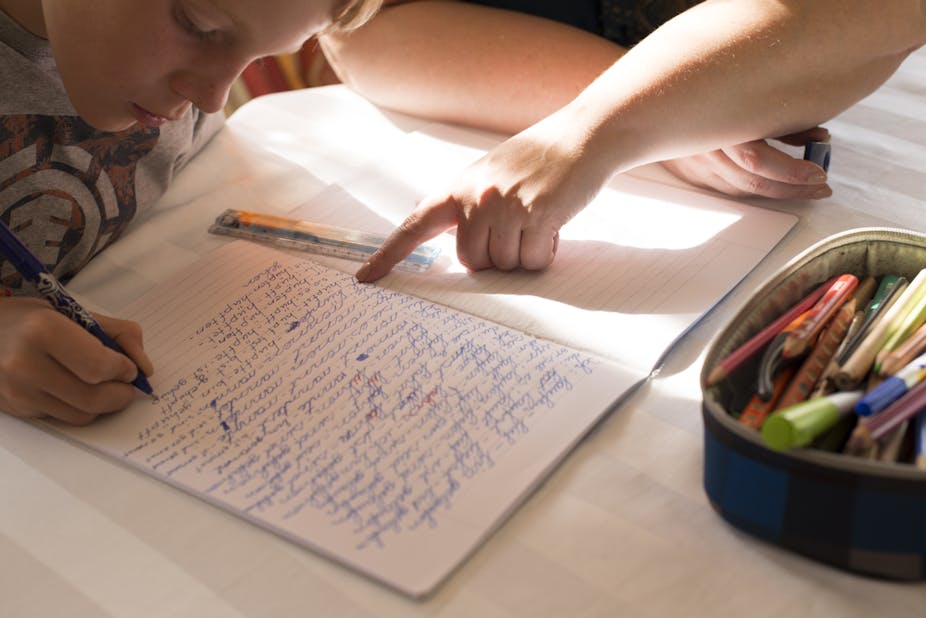Private tutoring is used by many parents around the world to supplement their children’s education and boost their chances of success at school. In England, several surveys have estimated the prevalence of private tutoring in state-maintained schools. Now it’s becoming clearer that those parents already paying a premium to send their children to private schools are just as likely to pay for extra tutoring.
Parents employ private tutors to raise their children’s attainment and performance in tests and examinations, particularly at transition points between primary, secondary and higher education. But concerns have been raised about the use of private tutoring by families wishing to ensure their children gain places in popular state schools, such as grammar schools, and so denying places to children from less affluent families.
New “tutor-proof” 11 plus tests, designed by researchers at Durham University’s Centre for Evaluation and Monitoring, are being deployed by some schools in an effort to level the playing field.
Who hires tutors?
The first major survey of state school students undertaken in 2003-4 estimated that one in four, or 27%, of those in years six, 11 and 13 received tutoring at the time of the survey or had done so in the past. Unsurprisingly, family background influences who gets private tutoring.
Parents who are more affluent and have higher levels of education are more likely to employ tutors. In 2003-4, the overall percentage of state school students with tutors was 39% if fathers had a university education, 24% if fathers had vocational qualifications and 21% if fathers had only a school education. The disparity was greatest in year 11 when students whose father had a university education were twice as likely to have tutoring compared to students whose father had only a school education.
Popular in private schools
Now, national and international surveys are broadening this perspective to show that it’s not just parents with children at state-maintained schools who are hiring tutors. In the 2006 Programme for International Student Assessment (PISA) students were asked to identify how many hours they spent participating in lessons out of school.
The results for England showed that 21% of private school children had one-to-one tutoring, broadly similar to the 17.1% of state school children who were also seeing a tutor. Likewise, of those who received tutoring and were in private schools 6.1% were tutored in small groups, similar to 7.5% in state schools.
A 2013 study in England by the educational charity the Sutton Trust suggests that there is a larger gap – with parents whose children attended private schools being significantly more likely to also pay for private tutoring: 27% of private school children compared to 14% from state schools.
The limited data available reinforces the view that it is not only parents in the state sector who turn to private tutors to boost their children’s achievement. For individual parents and their children this may be a rational choice.
But from a national perspective, the extent of extra investment in some children’s education raises issues around equality. Some young people may be equally capable but receive less support for national tests and examinations that are the gateway to educational opportunities and future employment.
Discrepancies in findings from these studies may be due to differences in samples and questions, as the PISA survey gathered information from students – whereas the study in England surveyed parents. Nevertheless, they point to the extensive additional resources being deployed by parents whose children attend private schools.
No results guaranteed
These parents already pay a high price for their education in the hope that this will buy high-quality teaching and the best possible results. It may seem surprising that they also pay for additional private tutoring. Likely explanations include the desire to maintain a competitive advantage over other privileged students, placing a high value on hard work, effort and educational success, and parents’ high aspirations for their children.
Yet several studies indicate that the effects of private tutoring on a child’s success are limited once factors such as a students’ prior attainment and family background are taken into account. Overall, some individual tutors and carefully designed tutoring programmes can be effective, but their results are not guaranteed.
Agencies that cater specifically for students in private schools have been in existence for many years, yet this sector of the market has remained relatively unexplored by researchers. This is partly due to difficulties involved in gathering information from students in private schools.
But the market of private tutoring is currently unregulated although early steps are being taken by The Tutors’ Association to promote professional standards among tutors and agencies. While some well-informed parents may be able to source an effective tutor, other parents may not be well-placed to do so.

